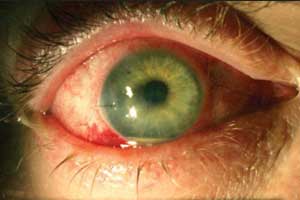- Home
- Editorial
- News
- Practice Guidelines
- Anesthesiology Guidelines
- Cancer Guidelines
- Cardiac Sciences Guidelines
- Critical Care Guidelines
- Dentistry Guidelines
- Dermatology Guidelines
- Diabetes and Endo Guidelines
- Diagnostics Guidelines
- ENT Guidelines
- Featured Practice Guidelines
- Gastroenterology Guidelines
- Geriatrics Guidelines
- Medicine Guidelines
- Nephrology Guidelines
- Neurosciences Guidelines
- Obs and Gynae Guidelines
- Ophthalmology Guidelines
- Orthopaedics Guidelines
- Paediatrics Guidelines
- Psychiatry Guidelines
- Pulmonology Guidelines
- Radiology Guidelines
- Surgery Guidelines
- Urology Guidelines
No increase in endophthalmitis rates after bilateral same day anti-VEGF Injections

No cases of bilateral endophthalmitis were found in patients undergoing bilateral same-day intravitreal anti-VEGF injections, according to a study published in the American Journal of Ophthalmology.
Endophthalmitis is an inflammation of the interior of the eye which is a possible complication of all intraocular surgeries, particularly cataract surgery which may result in loss of vision.
Durga S. Borkar and his associates conducted a study to evaluate practice patterns for bilateral same-day intravitreal anti-vascular endothelial growth factor (VEGF) injections and determine the rate of unilateral and bilateral post-injection endophthalmitis after bilateral same-day intravitreal anti-VEGF injections.
The researchers did a retrospective cohort study in which the records of patients with a diagnosis of neovascular age-related macular degeneration, diabetic macular edema, or retinal vein occlusion were electronically queried between April 1, 2012, and August 21, 2017, during which bilateral intravitreal anti-VEGF injections were performed.
The authors recorded the demographic information and indication for injection for each patient and office visit. Charts of patients with the disease were reviewed, and information was collected on presentation exam, culture data, and visual outcomes.
During the study period, 101,932 bilateral same-day intravitreal anti-VEGF injections were performed over 50,966 office visits for 5,890 patients. The average age of patients in this cohort was 74.2 (14.1) years and 60.6% of patients were female. The two most common indications for injection were neovascular age-related macular degeneration (54.3% of patients) and diabetic macular edema (35.4% of patients).
The authors found that twenty-eight cases of endophthalmitis (0.027% of total injections) occurred during the study period. There were no cases of bilateral endophthalmitis, and no patients had more than one occurrence of endophthalmitis.
The study concluded that patients undergoing bilateral same-day intravitreal anti-VEGF injections, there were no cases of bilateral endophthalmitis and the overall rate of unilateral endophthalmitis was low and comparable to prior studies of unilateral injections. The authors suggest that the results support the safety of the bilateral same-day intravitreal anti-VEGF treatment.
For more reference log on to https://doi.org/10.1016/j.ajo.2018.06.022

Disclaimer: This site is primarily intended for healthcare professionals. Any content/information on this website does not replace the advice of medical and/or health professionals and should not be construed as medical/diagnostic advice/endorsement or prescription. Use of this site is subject to our terms of use, privacy policy, advertisement policy. © 2020 Minerva Medical Treatment Pvt Ltd